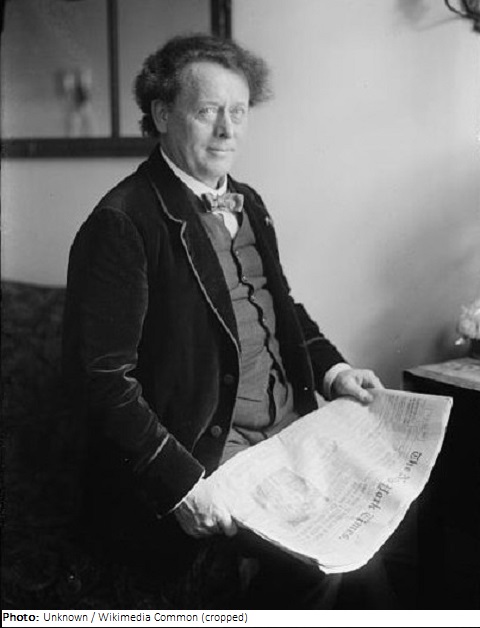
| Roles | Referee |
|---|---|
| Sex | Male |
| Full name | Joseph Wilhelm "Willem"•Mengelberg |
| Used name | Willem•Mengelberg |
| Born | 28 March 1871 in Utrecht, Utrecht (NED) |
| Died | 22 March 1951 (aged 79 years 11 months 25 days) in Scuol, Graubünden (SUI) |
| NOC |  Netherlands Netherlands |
Willem Mengelberg was a celebrated Dutch conductor. The son of German parents studied at the Utrecht Conservatory and later at the Cologne Conservatory. In 1891 he was appointed municipal music director in Luzern. There, he quickly became so well known that in 1895 he was appointed to lead the Concertgebouw Orchestra in Amsterdam. He held this post for 50 years until he resigned in 1945.
Under his leadership, the orchestra attained a position of prominence. In 1898, Mengelberg also became conductor of the Tonkoonst choral society in Amsterdam, and from 1908 to 1921 he was director of concerts for the Museum Society in Frankfurt am Main. He frequently appeared as a guest conductor in all European countries, especially in England, where he was an annual visitor. In 1905 he appeared for the first time with the New York Philharmonic and later conducted them regularly. At times, Arturo Toscanini (1867-1957) was his assistant conductor.
In 1928, Mengelberg received the degree of doctor honoris causa from Columbia University and in 1933 was appointed professor of music at Utrecht University. During the occupation of the Netherlands by the Germans, Mengelberg openly expressed his sympathies for the Nazis and lost the respect and admiration of his countrymen. At the same time, however, he supported Gustav Mahler and other Jewish musicians. After the liberation of the country in 1945, he was banned from performing, which was maintained until 1951. Just a month before the lifting of the ban, he died in his Swiss exile.
Mengelberg was an outstanding representative of the Romantic tradition of symphonic conducting. His performances of the Beethoven symphonies were distinguished by their dramatic sweep and power. He was a great supporter of many important composers of his time, including Mahler and Richard Strauss (1864-1949), becoming friends with both. Mahler dedicated his 5th and 8th symphonies to Mengelberg and the Concertgebouw Orchestra, as did Strauss with his symphonic poem Ein Heldenleben. Mengelberg was the first to perform a large cycle of Mahler’s works in Amsterdam in 1920.
His nephew Karel Willem Joseph Mengelberg (1902-1984) was also a well-known conductor and composer.
| Games | Sport (Discipline) / Event | NOC / Team | Phase | Unit | Role | As | |
|---|---|---|---|---|---|---|---|
| 1924 Summer Olympics | Art Competitions |  NED NED |
Willem Mengelberg | ||||
| Music, Open (Olympic) | Final Standings | Judge | |||||
| 1928 Summer Olympics | Art Competitions |  NED NED |
Willem Mengelberg | ||||
| Music, Compositions For Orchestra, Open (Olympic) | Final Standings | Judge | |||||
| Music, Compositions For Solo Or Chorus, Open (Olympic) | Final Standings | Judge | |||||
| Music, Instrumental And Chamber, Open (Olympic) | Final Standings | Judge |